#and that's why i don't really want adaptations of any Sanderson books
Text
On the bright side, the selfish gremlin I am, is happy to have a good TV show adaptation not being trendy and having to enjoy it without all the annoying mainstream drama. I don't like to share my things with a big audience.
There, I said it.
#his dark materials#i know i know it's selfish#but the way every popular series are treated nowadays#i absolutely don't want that for hdm#and that's why i don't really want adaptations of any Sanderson books#i mean bookwise it's a pretty big fandom but these are books so it's contained if you know what i mean#but yeah....#we only need the lotr movies as high fantasy adaptations anywah#the rest is just too good in our brain to be touched#and readers have the best imagination#plus it's so cool to see fanarts having totally different takes on characters#only downside is no pretty gifsets TT#but hdm is kinda blessed to have such a good adaptation overall (not everything is perfect but still)#with pretty much the smae small fandom than before#i just want Dafne and Amir to succeed#i mean Dafne already did before#still they shouldn't have fucked up the schedule and let us enjoy the beautiful emotions created by having one episode a week#anyway#nothing but selfish love for my stuff 💜#and this is why i never really engaged with a lot of fandoms#im at peace in my own#just social anxiety stuff lmao#i should add that you have the misfortune to be my friend and having or not but especially not seen a piece of media i have been into#then you're gonna have the rant i restrain myself from posting online#and they are... long
20 notes
·
View notes
Text
My reasons for reading the Wheel of Time
Are you unsure about reading the Wheel of Time? Whether or not you read along with my blog project (explainer here and WOT link index here), this post may be for you!
If you don't want any spoilers before experiencing it yourself, I will just say: watch the first two seasons of the TV show, first. The adaptation changes a lot of the details, but the show is taking elements Robert Jordan wrote 30 years ago, more than a generation removed from today's sensibilities, and he changed his mind on a lot of things as he went on. Rafe Judkins is doing an incredible job of adapting to accommodate changing sensibilities/expectations, a change in medium, and the things RJ didn't decide to make part of his world until later books.
If you don't mind some light expectation-setting spoilers, I'm going to lay out why I love the Wheel of Time, some reasons to pick back up and/or keep going with the series if you ever started and fell off, as well as content notes by way of the downsides so you know what you're getting into.
I can't say whether any of my cons will be dealbreakers for you, or if the pros will make it worth the cons for any individual reader. All I can say is, knowing the bad, I still reread this series because it was worth it for me, and a lot of folks like me agree. If you don't think you can do it, full respect, hopefully I'll see you when I take breaks from this series. 🫡
My rationale
This is probably one of the dearest stories to my heart, and the one that I started refining this format with. I've been in this fandom for almost 15 years, and I wouldn't trade… well, maybe a second of it, but not much.
One of the most chunky fantasy series that exists, the Wheel of Time was begun in the late 1980s by Robert Jordan. When he passed in 2007, his wife and editor chose Brandon Sanderson to complete what they thought would be the final book (but ended up being three books) series with the help of extensive notes he left behind about his intentions for the story.
Even though it's over 30 years old, and there have been active discussion communities on just about all the social interactive platforms you can think of in that time, the Wheel of Time lacks a lot of spoiler-free resources. There are a couple of attempts to make spoiler-free wikis, but they just can't ever quite compare to the full-spoiler ones. There are Discord servers with first-time-reader channels, but not a lot of options for double checking what's safe to say at any given point for full-readers, OR ways for first-time readers to double check information, like if they think they misheard something, without asking and potentially getting spoiled by someone who misinterprets.
So, besides having keyword searchable notes for myself, my ultimate purpose in creating my notes in the first place is to help folks who haven't read the books, to have access to that sort of summary without having to search and get major later-plot spoilers. And since that led to everything else that led to this blog, I think it's only appropriate that I do, eventually, revise my notes and post them here.
I will probably be taking breaks between books. Most of the books in this series have 40, even 50+ chapters. I've already gone and entered it in my Google calendar for tracking (are you really surprised I do that?) and the first book will take me two and a half months to cover, all by itself, though the chapters only average out to ~15 pages each. We're going to be here at least 3 years, and with breaks between more like 4 or 5. Even so, I think it's right for me to do this one more time.
The Pros:
WIDE cast of characters, including women who get their own deep personalities, motivations, and arcs. Women are often in compare-and-contrast mirrors to men's similar experiences happening in parallel, and only rarely rewards or prizes to be won. (Caveat: even some people who have read the series may scoff at this one, but part of my efforts will be to help make the subtextual things a little more noticeable, because a LOT of character is in the subtext in these books because of the close-third unreliable narrator effect. It's fair to interpret them more shallowly, hell I used to, but then I started looking deeper and found so much more than I expected.)
Setup, foreshadowing, and payoff. Many plot seeds are planted, nurtured, and harvested at perfect ripeness. RJ was a conoisseur of foreshadowing in the subtext, text, and supertext of the story, and when each was most appropriate. Many of the old web rings, forums, and fan sites are long, long dead, but I can attest that this series does some absolutely incredible work with giving readers plenty of information to theorycraft widely and wildly. One particularly (in)famous mystery lasted 8 books across 17 years, and that's not even the longest one, just the easiest for us to point at.
Rarely introducing a new character where an old one will do. While there are over 2700 named characters, a lot of comparable stories would have near doubled that to tell this much story. It's really fun to see names pop back up in unexpected places, and track people who don't get POVs across the world as they say hello from different places and nudge the background plot along.
Evil is no simple thing. It's kind of a spoiler, yes, but I think it's fair when you look at the landscape in which it was written, and if we have a different standard today, it's due in no small part to the Wheel of Time's influence. The 80s and 90s in the fantasy corner of the publishing industry were not bastions of moral complexity. The Wheel of Time has the big literal supernatural capital-e Evil, and the humans who sign on to support it for their myriad reasons, but there are also multiple acknowledged human evils in opposition to it. The heroes and villains get a similar treatment of depth. Some people are nearer to the unquestioned poles of Good or Evil, but your fave is probably a war criminal at some point either way. This story goes on for 14 books plus a prequel, and that sort of simplicity doesn't inspire the sort of deep fandom these have. Nobody is as shallow as they seem at first glance, and most long-time fans have faves in the Light, the Dark, and everywhere in between.
Unreliable narration means there's a LOT more to this series than a surface reading indicates. There's a lot to the surface reading, and there's nothing wrong with it, unless you count "you don't really, fully understand a lot of the characters until you understand the discrepancies between their thoughts and their actions". My first reading was completely superficial and I still had a blast. But my second, and third? Especially after interacting with more of the fandom and honing my skills at media analysis, there's SO much more there to discover. Hopefully this read will help surface-readers get a bit more of the deep understanding, and if your surface reading previously felt unsatisfying or left you hating a lot of the characters, maybe this will help you better appreciate what's going on.
The Cons:
The sexism and gender binary. Gonna level with you, there's a lot of very heteronormative and gender essentialist vibes in here. It's cis binary genders only (with a singular terrible exception we'll deal with when we get to, but know that it's coming and it's handled pretty dreadfully even though you could give it a more charitable reading if you wanted to) and no matter the country or culture they're from, women and men each have very strange ideas about what the other gender is about. Robert Jordan was a US Southern cishet baby boomer Vietnam veteran, he almost certainly had some really unhinged ideas about gender relations. (Why it's not as much a con: two reasons. First, see unreliable narration above. Second, I think that one of the themes that really gets missed by a lot, a LOT of readers is that imposing binaries divides and weakens us. I will be exploring this whenever I remember that it's relevant to talk about and you may get real sick of it by the end. But, I think a lot of RJ's writing in this direction was intentionally drawing attention to how destructive it is. It's just never really stated out loud, it's once again in the subtext, and it doesn't always land the way I think he hoped. I promise, I will have the citations to back up my assertion by the end.)
Queerness: none good. There's one sweet sapphic relationship which is relegated to "gay until graduation" status at what amounts to a girls only boarding school, and never spoken of again except as friendship. In the encyclopedias, the characters in it are explicitly defined as straight. There are several lifelong lesbians who are explicitly one or the other of the kinds of evil. There's the one singular bad trans rep character. After the Sanderson portions start, there's one man who's said to be gay. RJ maintained in interviews that of course gay people existed, the story just wasn't any of theirs, which still burns me. (The show is making this MUCH better. I genuinely had faith in Rafe Judkins's adaptation after something he does in season 1 in this vein, and I have zero problem adding a little queer goggle view to all the interactions.)
We go six books where sexual assault is barely a concern, then get a handful of them all back to back in one book, with a few more sprinkled through afterward. There's a particularly troubling one against a male main character that a lot of the fandom doesn't even acknowledge as having happened. I'm not even gonna try to defend this, it's inexcusable, and if I'd known, I might not have read it, even if it's one of my favourite stories today. (Hashtag Please Fix It In The Show Rafe Judkins.)
The start is rough. The first book is very much a Lord of the Rings homage, where RJ hopes you'll see the places he diverges and stay along for the ride as he defies the standard fantasy outline of his day. The "come play with me in this space" of it means there are a number of potentially really interesting things that are just abandoned and never mentioned again, in alongside the things that were refined along the way. I won't always point these out because spoilers, but it's good to be prepared for some level of disappointment that the thing you want to see explored, isn't. (And hey, you can always explore it in fanfiction!)
And the series remained a work in progress to the end. RJ always thought he was just two or three books from done, ever since book 3. He wrote book 11 believing there would be just one more after it, but after his passing, his wife/editor Harriet McDougal, Brandon Sanderson, and the rest of what we call "Team Jordan" decided there was no way to fit what was in his notes into a single book, so they split it into the final three (books 12-14). So, sometimes things will feel like they're hurtling toward a destination that you know, from the rest of the stack, has to be several books off for a satisfying arc of it. Alls I can say is, at least we know the series has an end that it seems most people who reached it found fairly satisfying.
Adjacent to this, The Slog. There's a plot slowdown in the middle, not unlike the "middle of a trilogy" problem but it goes on for, at least for some readers and by some reckoning, 6 of the 14 books. Readers who like a fairly dry focus on politics and subtle character interaction more than plot will find this less painful. Readers like myself who need a plot to keep us hooked and moving forward will feel like the series drags its wheels in the mud for a couple thousand pages. This is anecdotally where a lot of readers quit the series, and they often cite this as a main reason. I can promise you the ending is worth the Slog to get there, if you're like me. But, my notes go from over 100 pages in Google Docs for book 4, to 57 for book 5, and just 12 pages for book 10, if you want a comparison of how thin the plot gets. (A lot of long-time readers will try to gaslight me about this, because they come out of the woodwork every time it comes up, and I'm telling you now: that's a great way to get blocked, because I have the receipts. I'm not saying the slog exists as a moral judgement against it or anyone who likes it. I'm literally just stating provable fact that the plot slows down and at least this reader feels it really hard.)
8 notes
·
View notes
Text
Fantasy tropes to avoid (and ideas to reinvent them)
Hello aspiring writers of Tumblr! How is it going?
This is my first post on here and I decided to dedicate it not only to the genre I am writing in, fantasy, but also to a crucial topic, which relates and affects every genre in different ways.
TROPES.
It's lazy to build stories on something that has already been written a million times before. I don't like tropes at all as a reader. If I wanted to read the same stereotyped story all over again I would just stick to the previous book I have read with that same plot, so I would also spare myself the trouble of learning the unpronounceable names of these new stereotyped characters.
On the other hand, as a writer it might be tempting to give in and use tropes. "Why not? After all everybody uses them and I am already SO busy writing the actual chapters of my story."
I tell you what: every time a trope threatens to slide into your story, crush the page and throw it across the room, yelling:
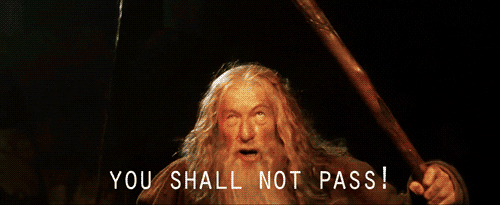
Seriously, though: tropes are just general, undeveloped ideas. That's what you need to do, develop them. In this way only will you ever be able to unleash their hidden potential.
Without further ado, may I present you three of the most common fantasy tropes and hints to reimagine them.
*Keep in mind that this is only my personal view on the subject and you can either agree or disagree with it.
1. The chosen one
This one is the most obvious one and I am also quite sure that you expected to find it on the list. Interesting, Watson: I guess that it makes this article stereotyped too…
Well we all know those characters. Those characters that were meant to be the one. The prophecies had spoken about them long before they were even born. They might as well be the only one capable of using magic or wielding a certain weapon. This character is either the only one who pushes forward the storyline or that one protagonist who does everything except choosing anything actively in the plot. There is no in between. Either way, they only possess notable qualities. Of course there is no trace of flaws. I mean, they are the hero.
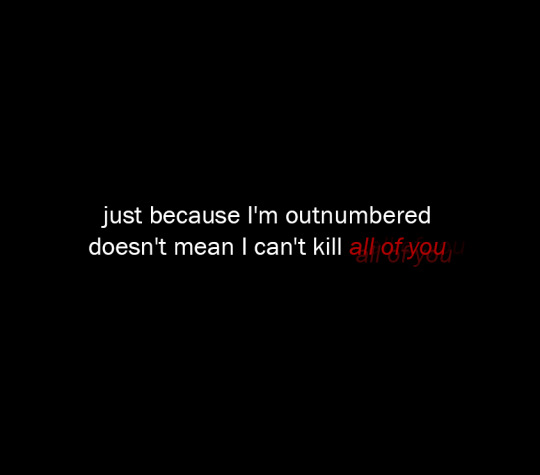
Have a side-kick (or co-protagonist) be the chosen one instead
A great idea, if you really want to insert this trope in your story, is to use it to your advantage and surprise the reader with it. Who could ever expect that the protagonist was actually never the chosen one? Or that another character is the chosen one from the start?
To see this trope well recreated I recommend watching the BBC TV series "Merlin" in which a young sorcerer, Merlin himself, must help the future heir to the throne, the prince Arthur Pendragon, to fulfill his destiny and become the greatest king who has ever lived. Arthur has no clue of what has been foretold, nor that he even is at the centre of a prophecy. All of Merlin and Arthur's choices will determine either the glorious success or the tragic failure of the quest; all of this while Merlin hides his powers from Arthur and everyone else as magic is condemned in Camelot.
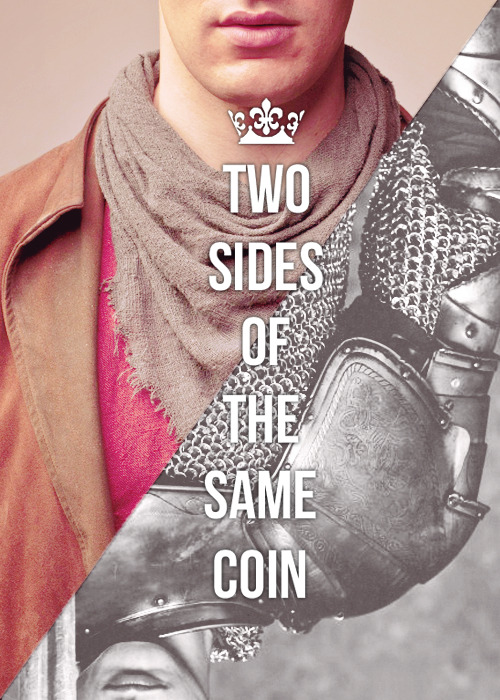
2. Overused fantasy Races
...which translates mostly into putting Elves, Dwarves, Trolls, dragons and any of the Tolkenian elements and creatures in your own story. Now, don't get me wrong. Tolkien is one of my favourite authors, hence I am always captivated by those fantasy novels that display these Races in their stories. But I don't want to read a copy, I want to read your own masterpiece.
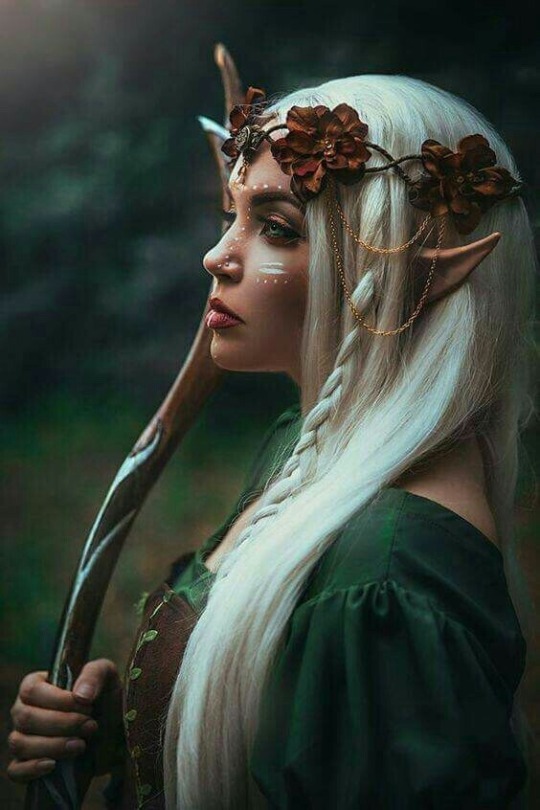
That's exactly why you should:
Redesign the well-known fantasy Races and adapt them to your world and to your theme or just create brand new ones
Personally, I absolutely LOVE to craft new fantasy Races. I believe that it adds depth and realism to the world-building (which does not consist only of geography). Each civilisation brings their culture, their traditions to your story and that's what makes a world truly breathe. In my opinion, the purpose of fantasy is not to focus just on the epic deeds narrated or on endless battles enriched with magic and legends, though those are very important part of this genre and they must be just as equally developed. The reason why I write fantasy is to spread awareness around the vast variety of themes that coexist in our society nowadays, in the first place global warming, the racism that still today people experience, LGBTQ characters which are often unrepresented both in literary fiction and TV. What better genre than fantasy is there to represent diversity and multiculturalism? On these latter points I will never not be thanking and loving the works of Steven Erikson which are part of the high-fantasy series "Malazan Book of the Fallen". Diversity and the brand new variety of intriguing Races are a huge part of what makes Malazan such an awesome fantasy series. I refer to Steven Erikson as the main inspiration of my writing and I recommend you to give a try to his books, if you have the chance. I warn you though, that it is not any light or easy reading.
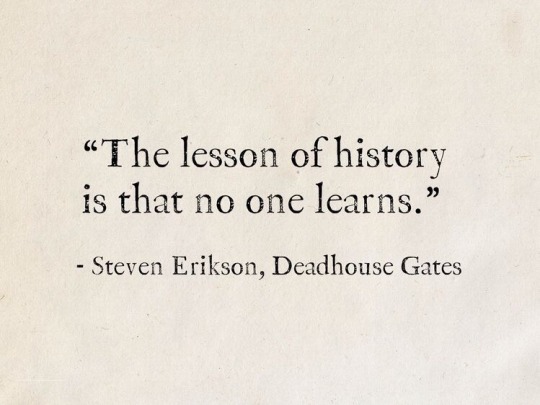
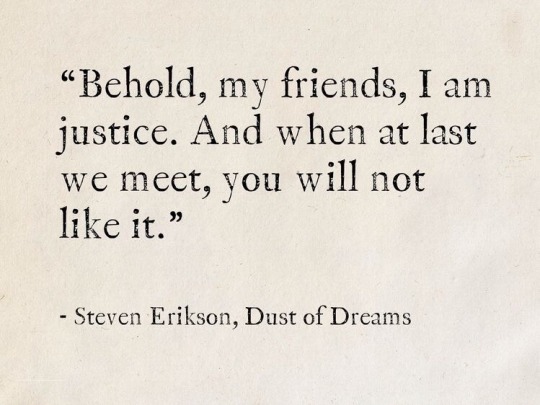
The other option might be to reinvent the well-known Races. Tolkien himself did not "invent" the Elves of Middle Earth, rather he made a legend of his own after having studied the myths and ballads of ancient civilities. Then he developed their language, their history and their culture as if they were a real existing population. Every single aspect of Tolkien's worldbuilding can be read in his Silmarillion. I think it is a must-read for anyone who is looking forward to reinvent the traditional fantasy Races or just to know more about them.
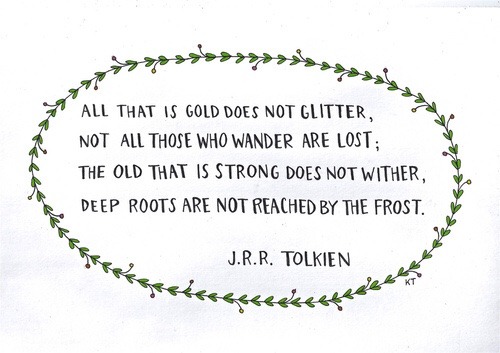
3. Unfailing magic systems
Magic can be anything you want. That doesn't mean, however, that it should be your escape point: stuff in your story should happen because of your characters, not only because of magic as it is simpler to put it that way. A magic system should be rational and engaging. The reader needs to be able to understand exactly how, when and why does magic work in your world. No, the answer should not be "because it's fantasy."
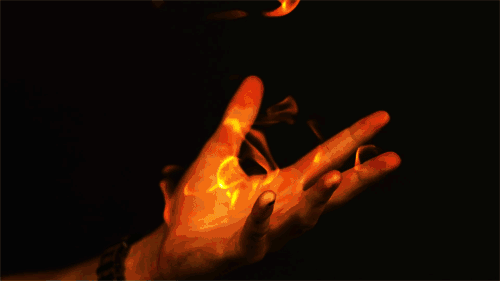
Set rules, limits and costs to the magic in your world
How do character gain magic abilities? Is magic accessible to everyone or is it elitist? Is it taught in specialised schools or is it something that resonates from within? Are wizards free to practice magic or is it banned? Or maybe are there only specific areas of magic that are prohibited? What is its source? Does magic come from higher beings or are spells more powerful the stronger the mage's will? Does magic need a catalyst (such as a talisman, a weapon etc.) to be casted? If not, do wizard recite spells? Do they need to trace specific symbols? Otherwise is it necessary to make specific hand gestures in order to release their powers? Does it exist only one system for all mages to use or are there multiple kinds? Last but not least, what are magic users in your world called? It's all up to you to decide. Ask questions and let each question lead you to another one. You need to know exactly how your magic system works and so does the reader.
What I love about crafting magic systems is the freedom to establish the boundaries and the natural laws that apply to your world, as magic is a huge part of the story if you're writing fantasy. Well, this could also lead to another question: is your world actually ruled by magic forces or do magic abilities have just a marginal role in the world building?
Remember that magic should not be used as an excuse to fill eventual plot holes in your story. Your magic system should function correctly and it should always stay true to itself. In other words, it must be believable.
And I can hear you thinking "but it‘s magic!"
Then guess what? You need to make the readers believe that magic is real!
First of all, set the rules, the limits and the costs that apply to your system. Having done that, you'll have finished most of the work that concerns the use of magic in your world. Most, not all. If you are a bit of a perfectionist like I am, consider the importance of developing your system furthermore by asking yourself questions, such as the one I have written above.
Rules: decide what makes your system work and what magic can be casted for.
Limits: decide what kind of tasks your magic system cannot perform.
Costs: decide from what kind of source is magic obtained from and, literally, what does it cost to mages to obtain their magic from this source (as Rumpelstiltskin of OUAT wisely says: "all magic comes with a price.")
The most excellent and well-rounded magic systems I have ever come across are the ones created by Brandon Sanderson in this "Mistborn" trilogy: allomancy, feruchemy and hemalurgy. All three magic system permit the magicians to use a wide range of abilities based on the metals they can "burn". Magic originates in the Shards and from Preservation and Ruin, two god-like beings. If you're already interested, I definitely recommend you to check Sanderson's novels out: they are a useful resource of inspiration.
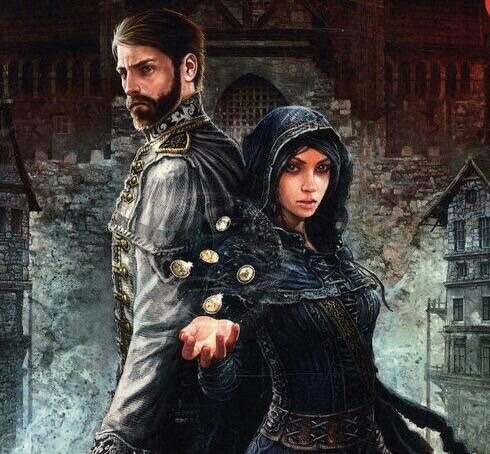
I hope this post has somehow given you the inspiration to go and write right now.
If you have questions about some of the points or requests for the next articles, don't be shy and send me a message! I will try to cover your topic as soon as possible and as best as I can (and I will also tag your profile, if you agree).
Thank you all for your attention. Bisous^^
#books#fantasy#writing#steven erikson#malazan book of the fallen#bbc merlin#mistborn#brandon sanderson#tolkien#silmarillion#fantasy tropes#writing advice#chosen one#magic system#fantasy races
14 notes
·
View notes